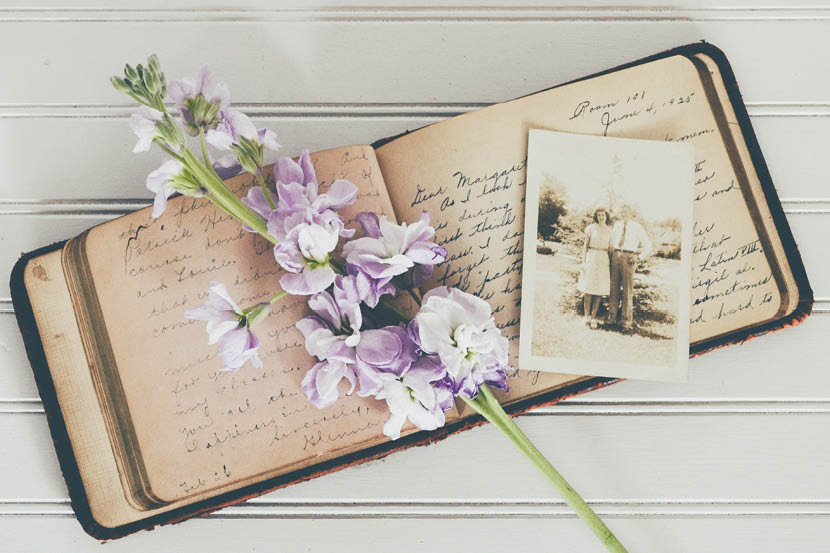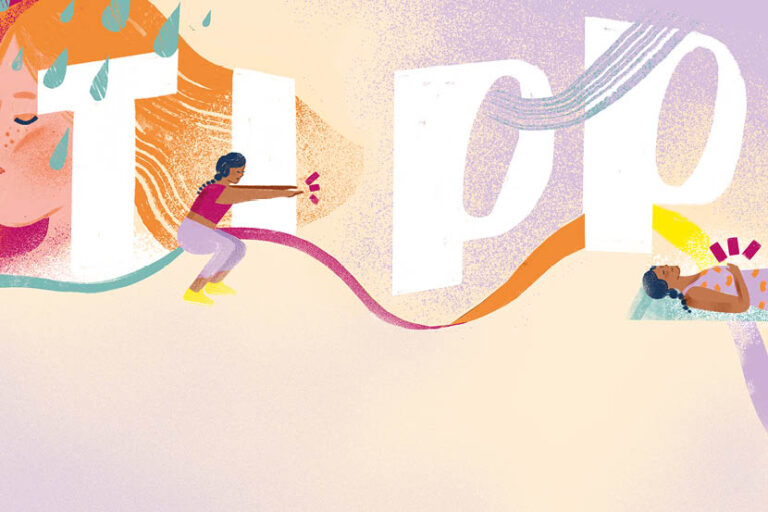
Writing a memoir can be rewarding but challenging. Here, Breathe offers a masterclass on navigating this intricate process.
Why memoir writing matters
What do writing a memoir and practising mindfulness have in common? At first glance, recording a life story appears a deeply introspective act, but the process can be eye-opening and allow for a more conscious connection with the world. So, what’s the appeal of this form of life writing and how might you get started if you’re keen to tell your story?
A new wave of lift writing
While autobiographies of public figures with extraordinary lives continue to be popular, there are growing numbers of memoirs that explore themes such as love and grief through the lens of ordinary experience. As this form of memoir is thematic, it doesn’t necessarily have to be chronological. Many focus on one aspect or period of a person’s life, rather than trying to tell the full story from infancy to older age.
Cathy Rentzenbrink, writer and memoirist, whose book, Write It All Down, provides a guide for putting your life on the page, describes it as a ‘personalised response to something universal.’ It’s how someone makes sense of their experience and unique perspective, which can be just as interesting as the subject matter itself. The writer shares the learning and insights they’ve gleaned from their inner journey with the reader.
Why writing your story can be healing
The benefits to the reader are clear, but what makes this genre appealing for the writer? Cathy’s own memoir, The Last Act of Love, was published in 2015. It tells the story of the long struggle that ensued after her younger brother, Matty, was hit by a car and experienced catastrophic injuries that left him in a permanent vegetative state for nearly a decade. Cathy, who was a teenager at the time of the incident in 1990, describes writing it as ‘a relief and a release’. While many memoirs deal with challenging subject matter, the act of writing about it can give emotional distance and be cathartic.
‘Writing is healing,’ says Cathy. ‘It allows us to process the world. It’s how I work out how I feel about things.’
Self-awareness through writing
By delving into experiences, there is also the possibility of greater self-understanding. Beth Kephart, award-winning writer, teacher, and artist, whose book, We Are the Words, provides a masterclass on the craft of memoir, suggests that:
‘The beauty of memoir is that in the process you discover yourself. If your writing contains the moment of discovery in some subtle way, that’s where the sparks fly for the reader.’ You may be surprised by what you find out.
How to start writing a memoir
If you’re curious about these developmental aspects of memoir writing, you don’t necessarily have to pen and publish a full book to enjoy this creative form.
Starting small can be the best approach. Beth suggests beginning ‘with a poem that’s memoiristic, or an essay or a single scene. Break it down into small pieces. You’ll be overwhelmed if you think you have to outline your whole life.’ Finding the joy in writing is key. Cathy suggests not taking yourself too seriously and aiming to ‘have an open mind and an open heart’, as curiosity can reap the most rewards. ‘The more we can be playful, finding our childlike, innocent self, the better,’ she says. Asking questions and remaining open is part of this process and it can also help to make it more rewarding and less pressurised.
Training your mind to observe
Bearing witness to your own experiences and how they’ve shaped you has other benefits, too. It can encourage a greater awareness of the world around you which, in turn, can boost mental wellbeing and spark creative inspiration. Cathy suggests experimenting with a five-senses meditation, where you cycle through your senses, or to ‘try looking for blue things or green things on a walk, to help you focus. Writing is about being a good noticer.’ According to Beth, slowing down and paying attention is key: ‘The whole point is to stop and experience the world.’ It’s also helpful to jot down any observations in a notebook, as details can often be invaluable when it comes to scene-setting later on.
‘Writing is healing. It allows us to process the world’ – CATHY RENTZENBRINK
Finding inspiration in everyday moments
As well as the outdoor world, inspiration can be found in photographs or objects that spark memories. And there are writing prompts (see overleaf) that can help to unleash inner creativity. It’s still easy, however, to feel daunted or experience writer’s block. In these instances, Cathy says that ‘the only way out of fear is to move through it. Write about fear itself. Write: “I don’t want to write today because…” Uncover interesting things.’
Once you get into the habit of practising writing you might want to experiment with a scene. Beth describes this as ‘an evoked time and place, not simply a report. The detail can land you in a scene.’ This is where that notebook we mentioned earlier – the one full of observations – comes in handy. It can generate ideas for that one element or detail that will bring a moment to life.
‘It’s helpful to think of putting the reader in the room, experiencing the memory with you,’ says Cathy, ‘think of the concrete details, the people, places, and things.’
Turning scenes into a bigger story
As you progress, you could try turning scenes into a bigger project, like a book. It’s often an organic process, and it’s common not to have everything planned out in the beginning. Beth thinks that this is what makes it fascinating for both writer and reader: ‘The art and the act of the memoir is what happens in the moment of writing. That moment is going to lead you to the next. If you have it all laid out, you’ll lose the special possibilities.’ Letting go of control and seeing where the writing takes you can add to the excitement.
Everything counts
When it comes to generating ideas for more scenes, Cathy suggests mind mapping (see overleaf). If you do decide to write a book, the chances are you’ll create more scenes than end up in the finished version.
Cathy describes this as iceberging: ‘All books are tips of the iceberg. Nothing that you write is a waste.’ That process of excavation and discovery is invaluable, regardless of whether a scene makes the final edit or remains in a drawer or on a computer.
Private or public? Deciding whether to share
Whether or not you choose to share your words, the act of writing them is fulfilling and can help you to cultivate a more meaningful appreciation of life.
For those who do decide to publish, it’s important to consider how other people are represented and the ways in which the memoir could affect your relationships with them. Cathy finds it pays to be open: ‘Be clear that you’re giving your perspective, your version of events.
It’s liberating and gives space for others to write their version. Don’t waste time and energy worrying about what people think. Do it for yourself first.’
Ready to give it a try? You might be surprised where your words take you and what you discover along the way.
Five tips to get the ideas flowing

1 Prompt jar
Writing prompts are a brilliant launch pad for creativity. Beth suggests writing about the first lie you remember telling. Try brainstorming prompts and writing them on slips of paper. Fold the slips and place them in a jar. Whenever you need inspiration, pull out a prompt and write for 10 minutes.
2 Old photographs
Images can be another way in. Beth says you can turn it into a puzzle, pondering a series of questions before choosing one and writing about it. Examples could be:
- What is missing from the photograph?
- Who is missing?
- What don’t I know about that moment when the picture was taken?
- Who was behind the camera? Can I imagine or remember them?
3 Found objects
Sea glass, handwritten recipes, a brooch – everyday objects can provide inspiration. Beth suggests experimenting with writing from the perspective of the object itself.
An alternative could be to recall a precious object that has been lost and explore your feelings about it, as well as why it was important to you.
4 Mind mapping
Cathy says this approach is helpful if you’re looking to uncover material. Start with a theme in the centre then draw spokes out from it, adding potential scenes that explore that topic. Choose one to write about.
5 Field trip
A change of scene can enable you to see things with fresh eyes. Revisit a street where you once lived or a place that holds special meaning. Take a notebook with you and jot down what you notice and how you feel.
Ready to start writing? Download your bonus PDF to start exploring the themes of your memoir.


















